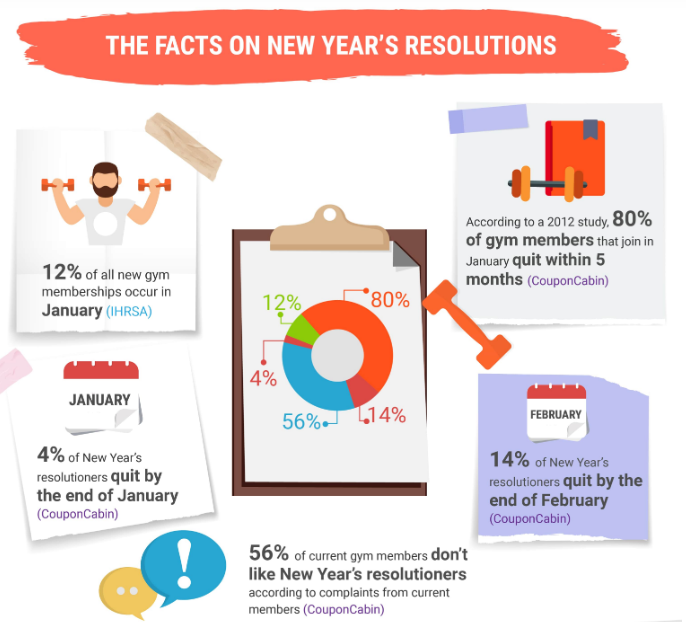OnCore Nutrition - Two Peas in a Podcast
Episode 15 - How to nail your New Year's resolution
Episode Summary
New year new you? New year no way! The same amazing you! But we’re here to help you make real change to your health in a positive way.
Episode Notes
Trends in the New Year

Google trends data


Source https://noobgains.com/gym-membership-statistics/
https://fitness.org.au/articles/fitness-australia-annual-reports/fitness-australia-annual-report-2018-19/14/1880/19
Behaviour change
- According to well known Clinical Psychologist Dr. Howard Rankin, who is an expert on behavioral change, a large part of the problem is that we think we have control over our behavior, when really we don’t.
- Lauren and I see this regularly in practice. It’s wonderful to have goals and aspirations, but the psychology and motivation behind behaviour change in complex.
- We know that habits (which often take 21 days to break) and stress, reduce our conscious control over the choices we make
- What drives our behaviour is not always logical, as humans we are emotional! You guys would know, sometimes we do things we know aren’t good for us, but we don’t know what drives us to pursue them!
- Quote by Dr Rankin: The more primitive, emotional brain generally has precedence over the newer, more rational brain.
- This is really important to note when it comes to setting achievable goals for the new year.
- Knowing this, we want to make sure you set yourself up for setting positive and realistic goals in the new year!
Why New Year's resolutions don’t work
- Abrupt change too quickly
- Expectations too large therefore setting self up for failure
- To successfully achieve these resolutions, small, short-term goals are the most effective and taking resolutions one step at a time is the best way to succeed
- Fear is such a powerful emotion it can override our priorities and goals we set. Fight/flight. We run away from fear before we run towards pleasure. We can have a fear of failure, success, or just fear of change—stepping outside our comfort zones—that stops may of us in our tracks before resolution become habits.
How to make them stick
- Make resolutions tangible and achievable. For example, instead of stating you will 'lose 20kg in 2020,' plan that you will 'walk everyday for 2 weeks' or ‘avoid choc after 8pm for 2 weeks’.
- Say it out loud. Write it down. Tell someone. Anyone. Be accountable.
- Enlist a support crew. Cheerleaders
- Make your goals EXTREMELY SMALL. Like stupid small. For example, she suggests instead of aiming to workout three times a week, you start with two squats a day. The change is so small, you won’t stop with just two. Walk only to the letter box. No chocolate on Tuesdays. Walk only to the letterbox. And that's how these small habits grow from ridiculously small to big. It's hard to resist not doing more, because it's just so easy.
- Anchor it to something. Your squats for eg, tether it to something you already do every day, like brushing your teeth. It’s only 2 mins. And all of a sudden it’s achievable.
- Opt in vs opt out. What are the things you always do? Eat lunch, brush your teeth, attend your specialist appts, go to work. Put your goals in that category. A MUST DO unless something major trumps it. Physically put them on your to do list, your calendar, your reminder list on repeat.
- More positive less negative. - Set your phone calendar to give you positive messages or reminders about your goals a few times per day. Remind yourself to walk. Set an alarm that call your 8pm cut off time.
- Time - it takes 17 to 21 days to form a habit; therefore, keeping a goal for those 21 days will support success
https://www.ncbi.nlm.nih.gov/pmc/articles/PMC535950/
https://insights.ovid.com/article/00006205-201501000-00002
https://www.ncbi.nlm.nih.gov/m/pubmed/26671434/?i=6&from=/15604158/related